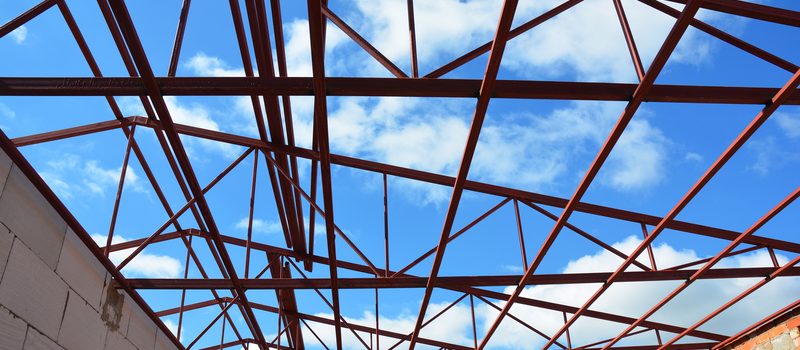Whether you’re refurbishing an aging building or planning a new project from scratch, it can be difficult to choose industrial roofing for a business.
Keep reading for 5 tips on how to choose the right roof for industrial applications.
How to Choose the Best Industrial Roofing
1. Look at the business’s budget
Are you working with a shoestring budget?
If so, it doesn’t make sense to consider materials or contractors outside of your available price range. An accountant can offer guidance to anyone unsure of how much room is available in the budget.
Unexpected costs can come up, especially with an old building. A little extra money can work as a buffer to keep the project from stalling.
2. Plan ahead
Business owners should think about how they’ll use the space in the future.
Will employees need regular access? Are there any local codes that limit building height? If so, a flat, non-slick roofing material would be the best fit for the project.
3. Check the weather and local climate conditions
Local climate patterns can play a big role in a roof’s durability.
Businesses in areas with frequent, intense storms—especially if high winds and copious rainfall are common—will need to choose a weather-resistant material.
High temperatures and UV radiation can also damage roofing materials.
Those in northern climates with heavy snowfall will need a sturdy material that can stand up under the extra winter weight. A flat roof can accumulate a lot of snow, but a contractor can determine how a roof will hold up in those conditions.
4. Pick a material
When it comes to industrial roofing materials, there are several options to choose from.
Built-Up Roofing
This type of roof is made of layers of a felt or fabric. That fabric is then sandwiched between coal tar pitch or asphalt.
It is usually topped off with a weather-resistant top coat to protect it from the elements.
EPDM Roofing
This material is made of a synthetic rubber. The rubber is resistant to weather, abrasions, and ozone damage.
This type of roof is lightweight and quick to install.
Thermoplastic Roofing
These roofs feature lightweight plastic membranes. They can stand up against weathering, UV rays, and even most chemicals.
Metal Roofing
Corrugated metal is a durable, fire-resistant classic. It can be slick when wet, however.
5. Choose a contractor for your industrial roofing project
So, you’ve budgeted for your project. You know how your roof should look, and you’ve chosen a roofing material. The next step is to look at roofing contractors.
The best contractor is someone who is professional and communicative with a solid reputation in the local community.
Potential candidates should have experience with similar jobs. A good contractor can also offer advice on a roof’s design and materials before building begins.
All contractors should have insurance to cover any injuries that might happen on the job. Roofing is an inherently dangerous profession. Business owners need to be sure they won’t be liable if an accident happens.
How Can You Find Quality Roofing Services?
Find a Business That can help you locate other businesses and contractors for any of your upcoming projects. You can browse by state or category with this completely free database, or visit our blog for advice on branding, SEO, or other business topics.

